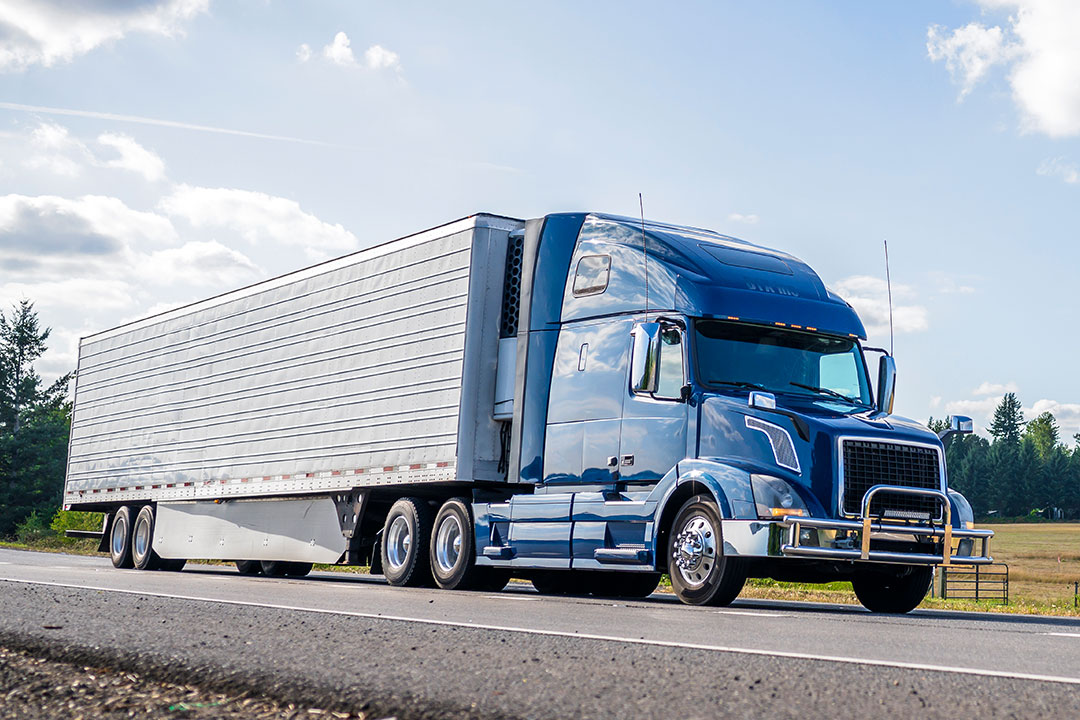Large commercial trucks are an essential part of our economy’s transportation system. A semi truck’s weight can vary depending on the type of cargo being transported. This makes it important for trucking companies, drivers and cargo loaders to properly secure and check cargo to prevent a catastrophic trucking accident.
We have seen a wide range of shifting cargo accidents across Missouri, Illinois and the Midwest. Below are descriptions of different situations in which shifting cargo could result in the need to file a trucking accident lawsuit.
How Does Shifting Cargo Cause Trucking Accidents?
There are many factors that may lead to a serious trucking crash. When cargo is improperly stored, secured or measured, it may result in a critical error that leads to life-altering injuries for people on the road. Here are five common ways improperly loaded or shifting cargo may result in a semi crash.
1. Inadequate Weight Distribution
Semi trucks are large vehicles weighing well over 20,000 pounds without cargo inside their trailers. Once cargo is added in the trailer, it makes weight distribution even more important for safety. If truck weight shifts during transit, it may affect a trailer’s balance — increasing the risk of a rollover or jackknife accidents.
2. Failure to Secure Materials
From the moment cargo is loaded into a trailer, it must be properly secured. According to Federal Motor Carrier Safety Regulations, cargo must be firmly immobilized or secured in a vehicle that meets the required strength, protection and securement of the cargo. In addition, tiedowns must be used properly depending on the type of cargo carried.
Securing materials by a trucking company, cargo loading facility or the driver themselves may be the difference between safely arriving at a destination or causing a deadly trucking accident from poorly secured or shifting cargo.
3. Spilled Cargo
Cargo spills may happen with goods or materials, such as produce or hazardous chemicals. In 2023, a central Illinois town faced an evacuation due to a truck jackknife accident that spilled caustic anhydrous ammonia. Regardless of the type of materials spilled, this situation often leads to multiple car collisions. Often, the fallen materials block roadways or the spilled cargo strikes another vehicle.
4. Overloading the Truck
All trucks and trailers have a maximum towing and carrying capacity to keep a semi truck’s weight balanced. Placing additional stress on a tractor-trailer beyond these limits is not only dangerous and may cause a crash, but it also may also lead to a truck accident lawsuit.
An overloaded tractor-trailer may increase the risk of:
- Tire Blowouts
- Spilled Cargo
- Braking or Mechanical Issues
- Steering Issues
- Rollovers
5. Limited Visibility
Semi trucks are large vehicles on their own and highly stacked cargo may prevent a driver from seeing other cars or hazards on the road. For trucks that have open trailers such as a flatbed, lowboy or step deck, cargo loaders must be diligent to ensure the driver’s visibility is not completely obstructed and keep the semi truck’s weight balanced.
Who Can I Sue for Shifting Cargo Accidents?
Multiple parties may be held accountable for a trucking accident due to shifting cargo or uneven semi truck weight distribution. Hiring an experienced truck accident attorney will help you determine the circumstances of the crash. Typically, one or more of these parties may be involved in this type of trucking crash.
- The Truck Driver. Drivers may be held at fault if they fail to inspect or secure cargo prior to any departure. Additionally, if they choose to drive a truck they know is improperly loaded or unsecured, they may be held liable for a shifting cargo accident.
- The Trucking Company. Oftentimes, trucking companies will be held accountable for rushing the loading process or by failing to train their drivers.
- The Cargo Loading Company. This refers to an entity outside of the trucking company who loads materials into a trailer. This could be the company whose product was loaded inside the trailer or an additional shipping company.
- The Truck Manufacturer or Equipment Manufacturer. If a truck experiences a mechanical error or has a faulty part that results in a cargo related accident, a manufacturer may be held liable. For example, if a tire blows out due to a manufacturing defect and results in a chemical spill, the tire manufacturer may be at fault.
Looking for a Shifting Cargo Trucking Lawyer?
While no one expects for a piece of cargo to fall off a trailer and cause a catastrophic accident, our team is here to help you gain justice. With years of truck accident experience, our attorneys will work with you in every stage of the filing process to help you move forward after the accident.
If you were injured in a truck accident due to shifting cargo, MHM is ready to help you. Connect with us in a free consultation today.
